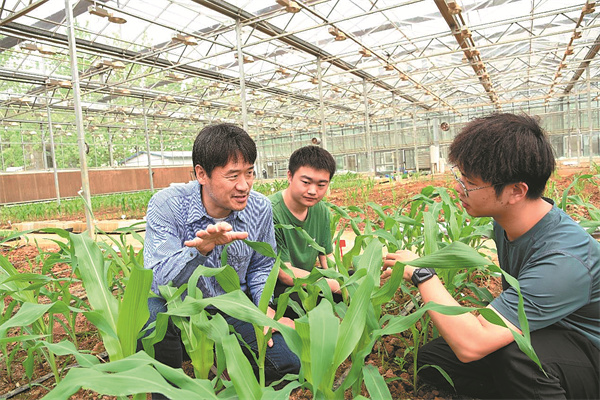Japanese professor honored for his work
Pioneer in plant immunity leads university to international acclaim, Li Yingxue and Liu Kun report in Wuhan.
By Li Yingxue and Liu Kun | China Daily | Updated: 2024-11-02 10:41

He explained to students how to distinguish between a plant's "friends" and "enemies". Using examples from corn and bananas, he illustrated the dangers posed by pathogens to crops and the principles of using microbes to address these threats.
"Understanding how plants deal with these kinds of friends or enemies helps us create better agriculture," he says. "With more harvests in agriculture, people have more food, which provides food security to the world. It's important."
He also advised students to read widely during their university years to build knowledge; not to take criticism to heart and to maintain a balanced mindset; develop personal relationships and establish broad connections; and enjoy the small pleasures in scientific research and life.
Currently pursuing a doctoral degree, graduate student Ding Miaomiao witnessed the journey of Tsuda's team from an empty laboratory to three fully equipped rooms filled with reagents, instruments, supplies, and students, starting from the moment Tsuda and his family arrived in Wuhan.
"I feel very fortunate to be his student. He doesn't criticize students; instead, he encourages us and respects our wishes," she says.
Ding reflected on her own growth, noting how she went from being hesitant to speak English to now engaging in normal conversations. "All of this is thanks to my mentor's guidance," she adds.
In Ding's memory, when she first entered the laboratory, she felt a significant lack of skills in literature review, presentation, and experimental techniques. Understanding this, Tsuda organized weekly group meetings to explain his research and share knowledge in the field.
"During these meetings, he would first present and introduce us to various concepts, and then encourage us to speak. It was like a course where the mentor shared all his research directions, fields, methods and ideas," Ding says.
























